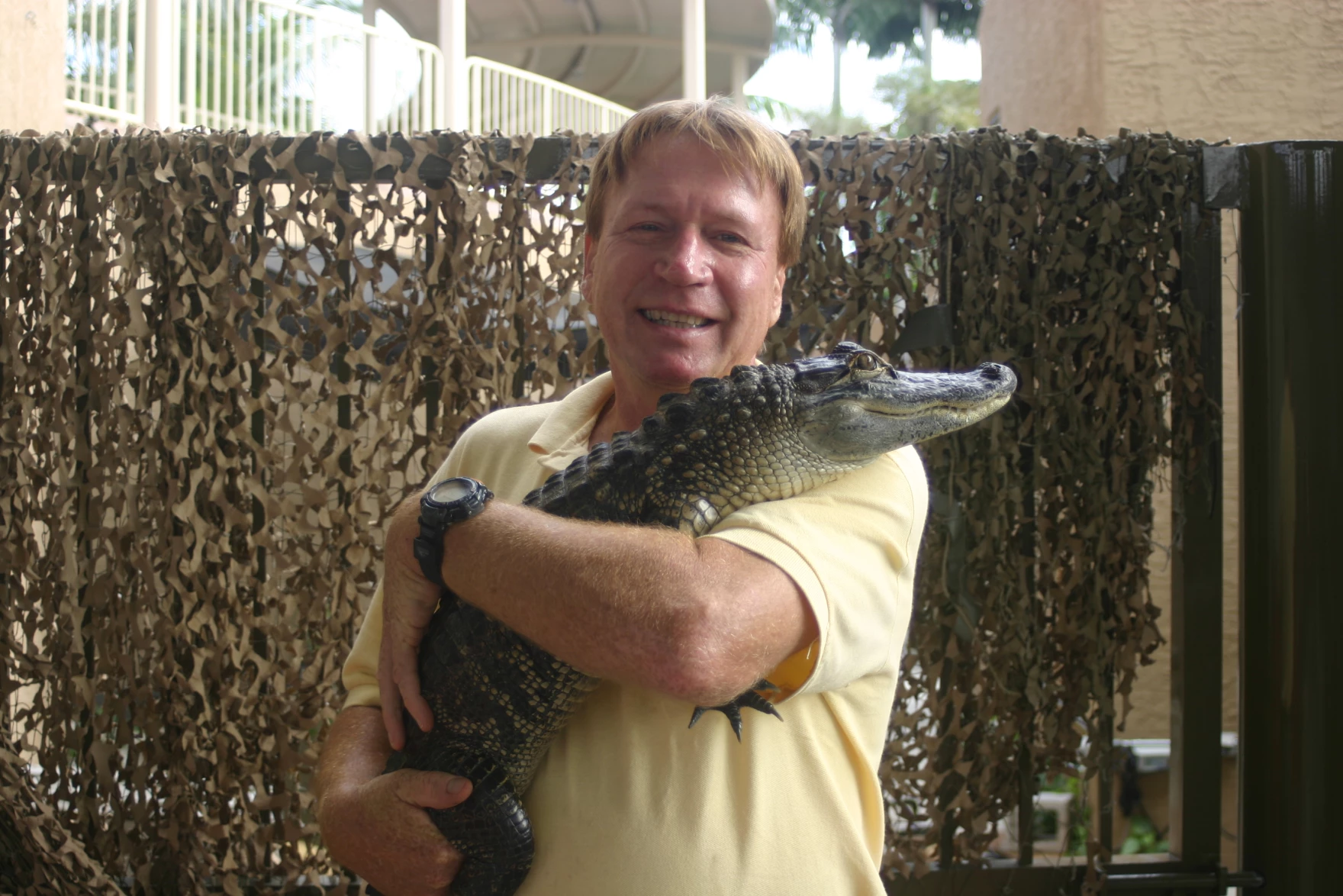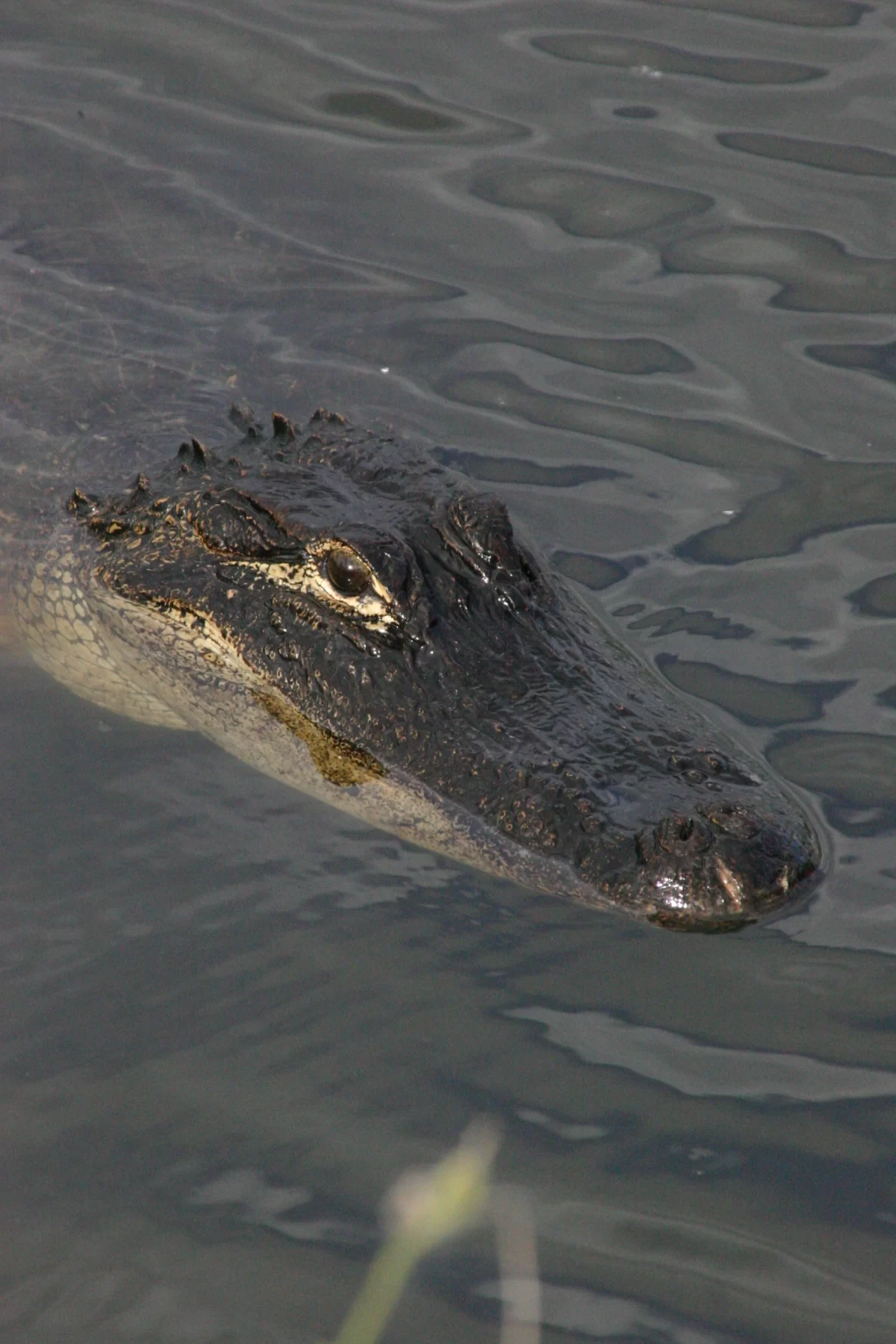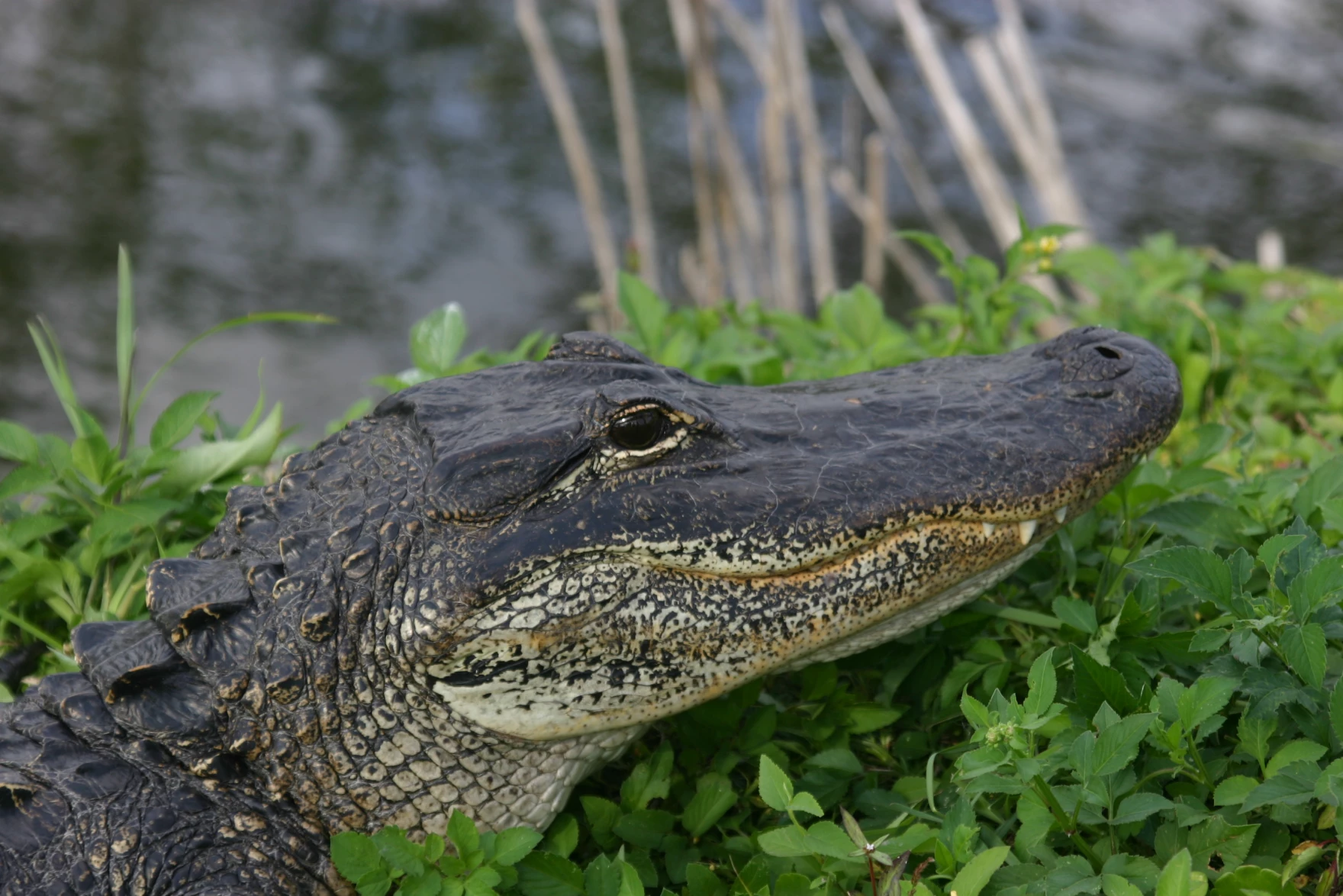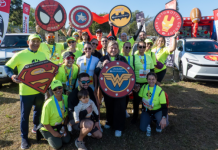|
Getting your Trinity Audio player ready...
|

It’s that time of year again: alligator breeding season.
It starts in early April and runs through June.
Female alligators guard their nests fiercely, protecting them from predators. But that protective instinct can sometimes lead to dangerous encounters.
“If you’re walking on a nature path and there’s an alligator nest nearby, she’s gonna defend it,” said Joe Wasilewski, a wildlife expert at the University of Florida’s Fort Lauderdale Research and Education Center.

Female alligators build a mound nest of soil, vegetation or debris — often near a water source.
These nests can reach up to three feet high and five feet across.
They typically lay 32 to 46 eggs in late June or early July, and the eggs hatch from mid-August through early September.
The females usually stay within 10 feet of the nest, hissing and opening their mouths to frighten intruders but rarely bite people.
Florida is home to more than 1 million alligators, and they can be found in all 67 counties.
So the chances you could see an alligator are pretty high.
READ MORE: As FAU grows, its beloved mascot the burrowing owl has fewer places to call home
There have been rumors of alligators running up to 35 miles per hour and that the best way to escape is to reportedly run in zig zags.
But Wasilewski says that’s not true.
“If there’s an alligator behind you, you’re gonna be faster than it, trust me on that one,” said Wasilewski. “You don’t have to worry about zig zag[ging], just run.”
Although alligators can move quickly on land, they are not well adapted to chase prey on land. However, they can lunge at prey near shorelines.

When do alligators attack
Alligators don’t usually bite people for reasons other than food.
Most attacks occur near or in waterways inhabited by alligators, particularly in areas where people have fed alligators — which is illegal.
Wasilewski explained that when alligators are fed, they become accustomed to people and will view people as a feeding platform and come up to them. That’s when they’re dangerous, when they lose their fear of people.
“ Don’t be chummy with them, then they won’t be chummy back with you,” Wasilewski said. “ It’s best to observe alligators from a distance, enjoy ‘em, take a nice picture and just go away.”
According to the Florida Fish and Wildlife Conservation Commission, there have been about 490 recorded alligator bites and 27 fatalities since 1948.
In the past decade, the state has averaged eight unprovoked bites per year that are serious enough to require professional medical treatment.
“ Being attacked by an alligator in Florida is a one in several million proposition, kind of like winning the lottery,” Wasilewski said. “ But again, it could happen, so could winning the lottery.”
Ecological Importance
Alligators are stewards of the land the entire year. And particularly during South Florida’s dry season, they play a vital role.
During the dry season, the entire Everglades dries up and there’s no surface water. But alligators dig out “gator holes” that can be 50 feet across and several feet deep.
Those become crucial watering spots for fish and other aquatic wildlife until the rain comes back.
“Alligators are engineers of the Everglades,” Wasilewski said. “They’re top predators and they have a serious role in the ecology everywhere they’re found.”

(Joe Wasilewski)
How to know if there’s a nest nearby?
Alligators live in practically all fresh and brackish waters, and sometimes even in saltwater.
But if you’re unsure about an area, ask park rangers, local authorities and community managers. There might also be signs and many times, the area where the alligators are nesting might also be roped off or marked.
“Don’t be frightened, just be aware, and if there is [an] alligator nesting in the area, just stay out of it until it’s over,” Wasilewski said.
Safety Tips
- Supervise children when they’re playing in or near water.
- Swim only in designated areas.
- Swim only during daylight hours. Alligators are most active between dusk and dawn.
- Keep pets away from waterways that may contain alligators. Dogs resemble the natural prey of alligators and their barking and playing may draw an alligator to the area.
- Never feed alligators or throw fish scraps in the water. You might not be intentionally feeding alligators but the result can be the same.
- If bitten, fight back and provide as much noise and resistance as possible. Hitting, kicking or poking it in its eyes may cause it to release its grip.
- Seek immediate medical help if bitten — bites often lead to serious infection.
If you see an alligator that poses a threat, call the FWC’s Nuisance Alligator Hotline at 1‐866‐FWC‐GATOR (392‐4286).
This story was originally produced by WLRN, South Florida’s only public radio station at 91.3 FM, as part of a content sharing partnership with Miami’s Community News. Read more at WLRN.org.
ABOUT US:
For more Miami community news, look no further than Miami Community Newspapers. This Miami online group of newspapers covers a variety of topics about the local community and beyond. Miami’s Community Newspapers offers daily news, online resources, podcasts and other multimedia content to keep readers informed. With topics ranging from local news to community events, Miami’s Community Newspapers is the ideal source for staying up to date with the latest news and happenings in the area.
This family-owned media company publishes more than a dozen neighborhood publications, magazines, special sections on their websites, newsletters, as well as distributing them in print throughout Miami Dade County from Aventura, Sunny Isles Beach, Miami Beach, Coral Gables, Brickell, Coconut Grove, Pinecrest, South Miami, Kendall, Palmetto Bay, Cutler Bay and Homestead. Each online publication and print editions provide comprehensive coverage of local news, events, business updates, lifestyle features, and local initiatives within its respective community.
Additionally, the newspaper has exclusive Miami community podcasts, providing listeners with an in-depth look into Miami’s culture. Whether you’re looking for local Miami news, or podcasts, Miami’s Community Newspapers has you covered. For more information, be sure to check out: https://communitynewspapers.com.
If you have any questions, feel free to email Michael@communitynewspapers.com or Grant@communitynewspapers.com
#thatscommunitynews #communitynewspapers #miamidade #miamidadecounty #thatscommunity #miamicommunitynews #coralgables #palmettobay #southmiami #doral #aventura #pinecrest #kendall #broward #biscaynebay





